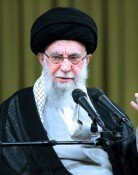The cracks of the welfare system
The cracks of the welfare system
Posted March. 03, 2025 07:17,
Updated March. 03, 2025 07:17
"If I had been there, would it have been different...?" These were the words of Mr. Kim, whom a Dong-A Ilbo reporter met at a funeral hall in Seoul on February 20. The deceased was his teenage daughter, and only a few people were seated in the quiet funeral room. Two nights earlier, Kim had lost his daughter in a fire that broke out in their multi-family housing unit in Nokbeon-dong, Eunpyeong-gu. His wife and son suffered severe burns in the blaze. "Seeing my wife’s injuries, it looks like she was trying to save our child. Her hands and face are covered in burns," Kim said.
The reason Kim was not home that night was poverty. His family was classified as a "near-poverty household," and his daughter had autism spectrum disorder (ASD). Children with ASD require constant care from at least one parent, which meant Kim’s wife was unable to work. As the sole breadwinner for his four-member household, Kim worked night shifts because they paid more than daytime jobs. On the night of the fire, he was away working.
The state did not entirely neglect this family. Kim’s daughter, as a person with a severe disability, received a monthly stipend of 170,000 won. The district office also provided basic necessities like rice. That was all. A man who labored 13-hour night shifts to sustain his family said that was all the government supported.
If they had been classified as recipients of Basic Livelihood Security benefits, they would have been eligible for a maximum monthly living allowance of 1.95 million won. However, as a near-poverty household, they were excluded. They also did not qualify for housing benefits, which can provide up to 500,000 won per month, because they own their home in Nokbeon-dong. The villa, similar in size to other units in the area, is valued at around 200 million won. Kim purchased the home on debt because his family had to settle down for his daughter’s condition.
The financial struggles of families with developmental disabilities like autism spectrum disorder are well-documented in statistics. According to the Korea Employment Agency for Persons with Disabilities’ 2023 survey on employment and life conditions of people with developmental disabilities, the average monthly income of such households was 2.75 million won—just 54% of the national average of 5.02 million won reported by Statistics Korea. The reality that one parent often cannot work is starkly reflected in the data. This economic hardship has led 40.1% of households with a developmentally disabled member to qualify for basic livelihood benefits.
This is not to suggest that families like Kim’s should receive unlimited financial aid. There are undoubtedly others in even greater need who fall through the cracks of the welfare system. However, in a country that provides 500,000 won per month to young adults and 600,000 won to farmers, how can it justify granting just 170,000 won to a family struggling with a severe disability? Can the current welfare system indeed be called fair?
Fortunately, following The Dong-A Ilbo's coverage on February 22, 2025, Rep. Na Kyung-won of the ruling People Power Party is preparing to propose a revision to the National Basic Living Security Act. The amendment would ease the income and asset criteria for low-income households with severely disabled members, ensuring they can qualify for benefits even if they own a home. While this action comes too late for Kim’s daughter, one can only hope it marks the beginning of greater political attention to the issue.





![[단독]폴란드, 韓 해군 최초 잠수함 ‘장보고함’ 무상 양도 안받기로](https://dimg.donga.com/c/138/175/90/1/wps/NEWS/IMAGE/2026/02/27/133437397.1.jpg)

